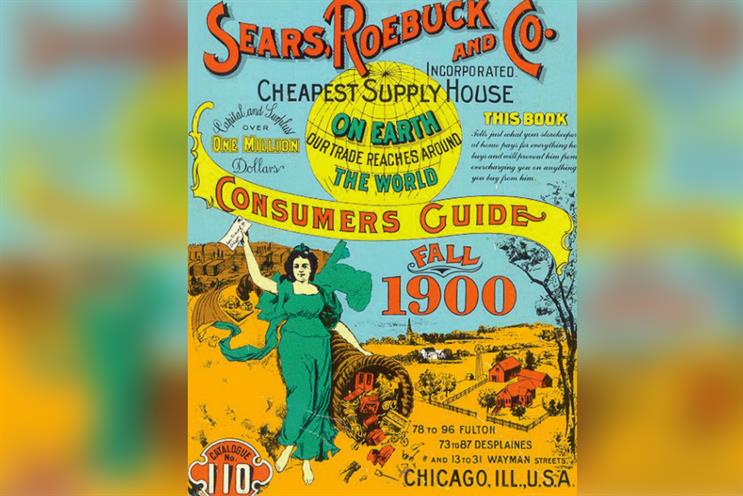
After all, it was only in 1967 that Lester Wunderman coined the term. In fact, the idea of selling products directly to consumers stretches back hundreds of years.
In 1498, Aldus Manutius, a Venetian publisher, printed a catalogue of books he was selling. And it would be equally wrong to think of the modern mail-order business as a US invention.
The first was launched in 1861 in the unlikely location of Newtown, Powys, and was the brainchild of Pryce Pryce-Jones, a one-time apprentice draper.
Taking advantage of an emerging national postal service and a burgeoning rail system, Pryce-Jones established the Royal Welsh Warehouse, selling local Welsh flannel. However, it was in the US where the mail order came into its own.
The country is believed to have been introduced to the concept by Benjamin Franklin, one of the founding fathers, who, in 1744, produced a catalogue of the scientific and academic books he sold.
Yet it was not until more than a century later that what was to become known as direct marketing really established itself with a game-changing initiative from a company that grew out of a small watch-selling business launched in Minnesota in 1886.
Its name was Sears Roebuck. In 1892, the company mailed out 8,000 postcards bearing a simulated handwritten message. The response was one that any of today’s internet marketers would have killed for.
The mailer resulted in 2,000 orders. It proved to be the catalyst for the famous Sears Roebuck catalogue, which, by 1894, had grown to 322 pages showcasing everything from sewing machines to cars. It was branded "America’s wish list".
Things you need to know
- Sears Roebuck sold more than 70,000 kit houses by mail order between 1908 and 1940. Many of them are still lived in.
- In 1932, British businessman Sir John Moores sailed to the US to look at the operations of companies such as Sears Roebuck to get ideas for his new Littlewoods catalogue.
- Online retailing has caused a steady decline of the catalogue industry. However, the adverse customer reaction when Argos removed catalogues from its new digital stores has led some experts to suggest the industry still has a future.

